What you’ll learn:
- Metformin can support weight loss by improving insulin sensitivity and appetite regulation and works best when combined with healthy lifestyle changes.
- Metformin offers a cost-effective, oral alternative to injectable weight loss medications.
- While weight loss with metformin is typically modest, combining it with lifestyle changes can enhance results and build lasting habits.
Losing weight and keeping it off is not easy, and for some people, medication can help where lifestyle changes have fallen short. You have several options if you’re ready to think about taking something for weight loss. But, some medications can be expensive, or they might not work with your lifestyle. For example, GLP-1s, like Wegovy® and Zepbound®, come as weekly injections, which can be off-putting to some and also may come with a steep price tag. That’s where metformin stands out—it’s an oral medication you take daily, and it can be more affordable if insurance won’t cover GLP-1 medications. Ready to learn more?
Metformin is FDA-approved for diabetes management, but it can be prescribed off-label for weight loss. How does it work? Studies suggest it may support weight loss by changing how your body processes sugar and insulin when combined with lifestyle improvements. Could metformin be right for you?
We’ll explore how metformin works, who can take it, its recommended dosage, potential side effects, and why pairing it with personalized support can make a real difference. If you’re curious about how metformin might fit into your weight loss journey, see if you qualify for Noom Med. Our clinicians can decide if it is right for you and prescribe it if applicable.
How does metformin work for weight loss?
While the effect varies from person to person, research shows that metformin, combined with healthy lifestyle changes, can lead to meaningful weight loss. Metformin works in a few ways that may lead to weight loss:
- Boosts an “anti-hunger” molecule: Metformin appears to increase levels of a molecule linked to appetite suppression. This same molecule is naturally elevated after intense physical activity, a time when hunger tends to be reduced. By mimicking this effect, metformin may help curb appetite.
- Improves insulin sensitivity: One of metformin’s primary functions is to improve the body’s response to insulin. It helps lower glucose production in the liver and enhances how cells use insulin, which can reduce fat storage and promote weight loss.
- Stabilizes blood sugar levels: By keeping blood sugar levels more consistent, metformin prevents large spikes and crashes in sugar. Balanced insulin levels can reduce fat storage and encourage the body to use stored fat for energy more effectively.
While metformin’s weight loss effects are generally modest, they may be more pronounced in people with insulin resistance or prediabetes. As always, consult your healthcare provider to determine if metformin is appropriate for your health goals.
Who can take metformin for weight loss?
Metformin may be prescribed off-label for weight loss, typically for people with a BMI of 25 or greater, especially if they have insulin resistance, prediabetes, or polycystic ovary syndrome (PCOS). However, the decision to prescribe metformin can vary based on individual health factors and a healthcare provider’s assessment.
Rx weight loss, the right way, with Noom
Get access to prescription weight loss medication with Noom.How much weight can I lose with metformin?
In one study, people with BMIs over 27 lost an average of nearly 13 pounds in six months while taking metformin, or nearly 7% of body weight.
Metformin works best for weight loss when paired with healthy lifestyle changes. Combining it with a balanced diet and regular exercise can really boost results. Noom can help cultivate those lifestyle changes, making metformin more effective.
What lifestyle changes should I make to lose weight on metformin?
While metformin can help improve insulin sensitivity and curb your appetite, it works best for weight loss when paired with healthy habits. Eating a balanced, lower-calorie, protein-rich diet, staying active, reducing stress, and getting enough sleep will all help you lose weight while taking metformin.
That’s where Noom comes in. Noom goes beyond just focusing on medications by offering a well-rounded, personalized approach to weight loss. It helps you tackle the psychological side of eating and build habits that stick.
- Eating a nutrient-dense diet: Fill your plate with colorful fruits and vegetables, lean proteins, whole grains, and healthy fats—so your meals are balanced and satisfying. Keep track of what you are eating to be sure you are eating enough protein to keep your muscle mass while you lose weight. Noom’s GLP-1 Companion will give you a protein target to hit to ensure you’re getting the right amount.
- Mindful eating: Focusing on what you are eating and enjoying it thoroughly can help you feel satisfied and ultimately eat less. Learn to pay attention to hunger and fullness cues, making meals more intentional and enjoyable.
- Finding movement you love: Whether it’s a quick walk, yoga, or strength training, Noom helps you figure out what works for your lifestyle and keeps you moving regularly.
- Reduce stress: Stress can impact both eating habits and overall health. Noom’s tools, like thought reframing and mindfulness exercises, can help you manage stress in healthier ways. Incorporating stress-reducing activities like deep breathing, journaling, or connecting with loved ones can prevent emotional eating and keep you focused on your goals.
- Improve your sleep: Quality sleep plays a critical role in weight management and overall wellness. Noom encourages creating a bedtime routine that supports better rest, such as limiting screen time before bed, maintaining a consistent sleep schedule, and managing stress in the evenings. Proper sleep helps regulate hunger hormones and can improve your ability to make healthier choices during the day.
By focusing on these core areas—nutrition, mindful eating, movement, stress management, and sleep—Noom helps you create a sustainable approach to weight loss that goes far beyond the scale.
If you qualify for Noom Med, you’ll get even more support. Noom Med connects you with a clinician who can determine if metformin is right for you and prescribe it if needed.
The best part? Your clinician will develop a plan that works for your unique goals and health history. And because weight loss is about more than just pills, they’ll guide you in building healthy habits, tackling obstacles, and creating lasting change with Noom’s tools and trackers.
What is the right metformin dosage to lose weight?
Your clinician will start you on a low dose to minimize side effects, gradually increasing it as needed. People typically start on the same dose as for treating diabetes. It will be increased if well tolerated.
Regular check-ins with your healthcare provider are essential to ensure metformin works effectively for you. During these appointments, your doctor will monitor your blood sugar levels, kidney function, and vitamin B12 levels. They’ll also discuss your weight, overall progress, and any side effects you might be experiencing. These check-ups allow your doctor to fine-tune your treatment for the best results and discuss any side effects.
Side effects and warnings for metformin
Most of the side effects of metformin are mild and manageable. Let’s explore what you might experience and what to watch out for. First, let’s talk about who shouldn’t take metformin.
Who should avoid metformin?
Metformin isn’t right for everyone, especially if you have certain health conditions. If you have severe kidney or liver problems, a history of lactic acidosis, or certain heart conditions, metformin might not be the best choice. Regular alcohol consumption can also increase the risk of complications, so let your doctor know if that applies to you.
Common side effects
Side effects are more likely when starting metformin or adjusting the dose. These are usually mild and temporary and include:
- Nausea
- Diarrhea
- Stomach pain
- Loss of appetite
- Metallic taste in the mouth
Here’s how to handle them: take metformin with food, stay hydrated, and avoid heavy or greasy meals. Spicy dishes and alcohol can also make symptoms worse, so it’s best to keep those to a minimum. The good news? These side effects typically fade after a few weeks.
Serious side effects and warnings
While rare, metformin can cause more serious side effects, and it’s important to know what to watch for. Here are the big ones that require immediate medical attention:
- Lactic acidosis: This is a rare but serious condition where lactic acid builds up in your bloodstream. Symptoms include muscle pain, severe tiredness, breathing problems, dizziness, abdominal pain, or an irregular heartbeat. People with kidney, liver, or heart issues, or those who drink heavily, are at a higher risk. If you notice these symptoms, call for emergency help right away.
- Kidney problems: If you notice swelling, fatigue, changes in urination, or shortness of breath, get immediate medical attention. Staying hydrated is a simple but effective way to support your kidneys.
- Allergic reactions: Allergic reactions are rare but serious. If you experience swelling, difficulty breathing, or a rash, seek immediate medical attention.
Other issues to watch out for:
- Vitamin B12 deficiency: Taking metformin long-term can lower your Vitamin B12 levels, which might leave you feeling tired or weak. You could also notice numbness or tingling in your hands and feet. Talk to your clinician if something doesn’t feel right.
- Low blood sugar (hypoglycemia): When combined with insulin or certain diabetes medications, metformin can sometimes cause low blood sugar. Look out for dizziness, sweating, shaking, blurred vision, or a racing heartbeat. Your doctor may adjust your other medications to help prevent this.
How Noom supports your weight loss journey with metformin
Losing weight is challenging, and for many people, lifestyle changes alone may not be enough to reach their health goals. Medications like metformin offer a promising option for weight loss by improving how the body handles blood sugar and insulin. Compared to GLP-1 medications, metformin might also be a more affordable medication, making it a more accessible choice for many. Keep in mind, though, that weight loss success with metformin tends to be modest and works best when combined with healthy habits like balanced nutrition, regular physical activity, and mindful eating.
If you’re considering metformin for weight loss, it’s essential to work closely with a healthcare provider to ensure it’s the right fit for your health needs. If you qualify, Noom Med can simplify this process by offering clinician support and personalized lifestyle guidance to maximize your results. Sustainable weight loss is about more than just medication—it’s about long-term habits, and with the right tools and support, you can create meaningful, lasting change.
Why you can trust us
At Noom, we’re committed to providing health information that’s grounded in reliable science and expert review. Our content is created with the support of qualified professionals and based on well-established research from trusted medical and scientific organizations. Learn more about the experts behind our content on our Health Expert Team page.






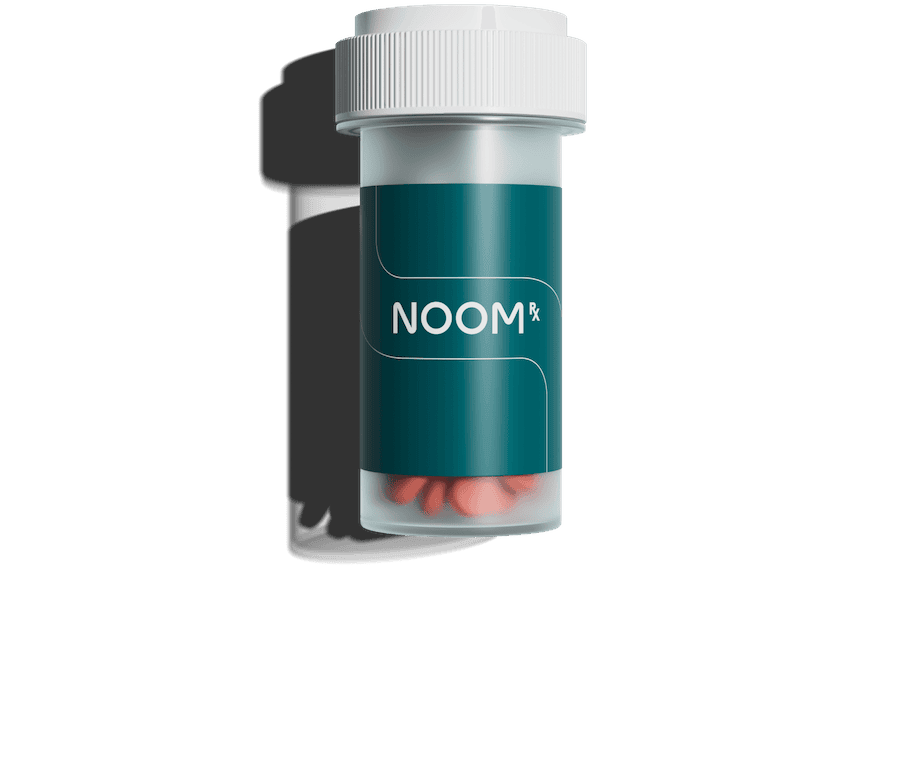

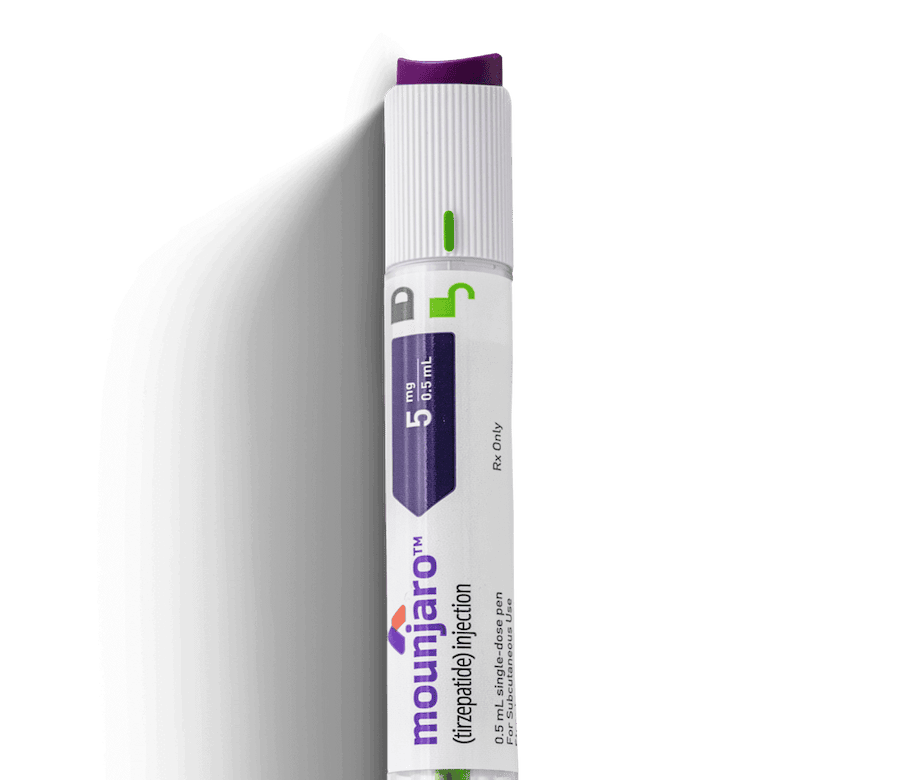




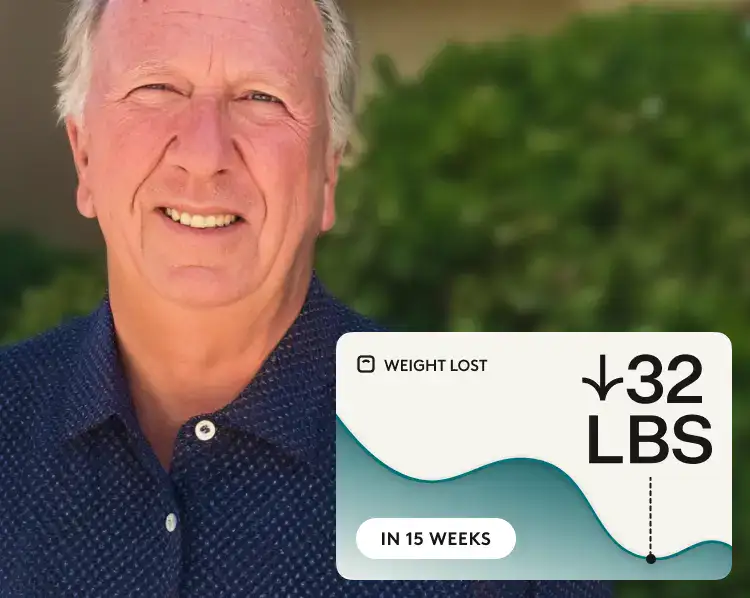



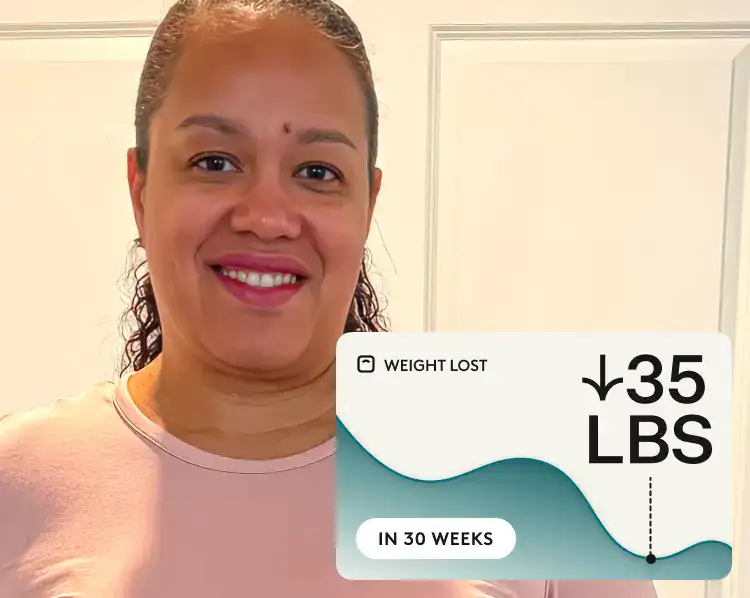
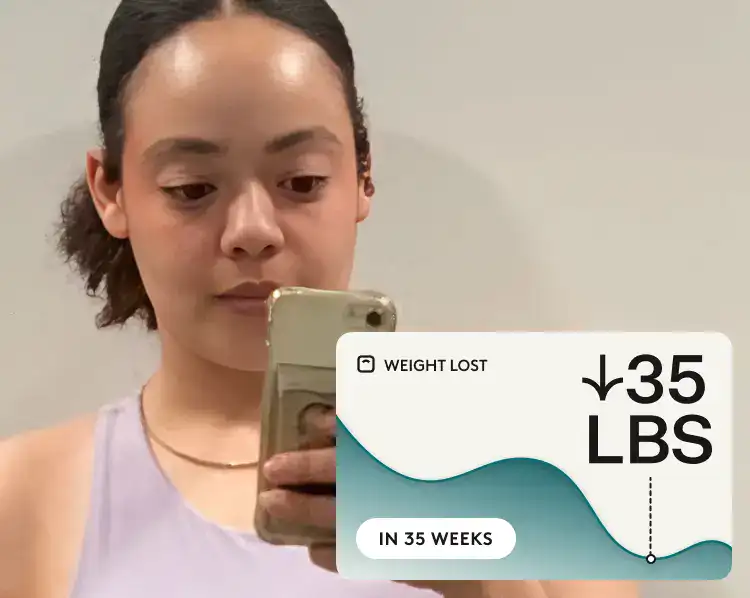



 Meaghan Cameron
Meaghan Cameron
 Noom Team
Noom Team
 Melissa Kay
Melissa Kay


